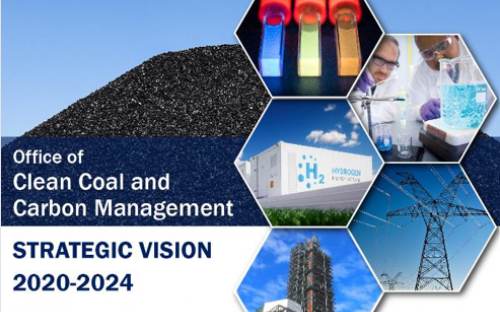USEA CONSENSUS PROGRAM WEBINAR: DOE-FE's Office of Clean Coal and Carbon Management's Strategic Vision through 2024
The strategy for the U.S. Department of Energy's Office of Clean Coal and Carbon Management (OCCCM) is based on a strong mission and vision to enable a vibrant, resilient coal industry characterized by diverse uses for America's coal resources. This strategy envisions new opportunities for modular, highly efficient coal plants to produce electricity with near-zero CO2 emissions for seamless integration with renewables on the modern grid. The strategy represents a rethinking of coal and coal resources to create a diverse set of valuable products and generate cleaner hydrogen for industry. Technologies developed to capture and utilize carbon from coal can also be applied to natural gas, biomass, and industrial sources of carbon to achieve carbon-neutral or net-negative emissions.
Emerging technical advances in coal-fired power and carbon capture technology will leverage innovations in high-performance computing, AI, ML, smart manufacturing, and other high-tech fields. Building strong domestic and global partnerships with other governments and organizations involved with coal and carbon management will enhance information exchange and accelerate technology deployment. Analyses of key issues will lay the groundwork for an effective R&D portfolio that addresses both technical and market needs.
OCCCM expertise in technologies such as carbon capture and geologic storage is essential to reducing carbon emissions. The Office will conduct outreach that elevates public awareness of OCCCM contributions to national energy and economic security and expands access to premier DOE experts in clean coal and CCUS. Foundational work conducted through programs like University Coal Research and the Mickey Leland Energy Fellowship will advance knowledge and help develop a skilled future workforce. OCCCM fosters educational opportunities with Historically Black Colleges and Universities (HBCUs) and Minority Serving Institutions (MSIs) to build more diversity in future generations of energy scientists and engineers. The Office also provides technical assistance and resources for tribes and tribal energy resource development organizations, including grants for Native American educational projects.







